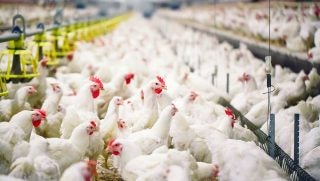Today, the Environmental Protection Agency finalized the 2020 Renewable Volume Obligation (RVO) rule, setting renewable fuel volume requirements for the coming year, including accounting for 2020 refinery waivers. The final rule uses a three-year average of the Department of Energy recommended waivers as an estimate for 2020 waivers rather than an average of actual gallons waived by the EPA.
National Corn Growers Association President Kevin Ross made the following statement on the release of the rule, which sets renewable fuel volume requirements for the coming year, including accounting for 2020 refinery waivers.
“The Administration has chosen to move forward with a final rule that corn farmers believe falls short of adequately addressing the demand destruction caused by EPA’s abuse of RFS refinery waivers. While using the DOE recommendations to account for waivers is an improvement over the status quo, it is now on corn farmers to hold the Administration to their commitment of a minimum of 15 billion gallon volume, as the law requires. We will use future rulemakings and other opportunities to hold the EPA accountable.”
The Renewable Fuels Association also expressed disappointment in the rule’s blending requirements, arguing that the rule opens the door for small refinery exemptions to continue eroding RFS volumes and destroying demand for America’s biofuel producers and farmers.
“After EPA’s overwrought abuse of the SRE program in recent years, agency officials had a chance to finally make things right with this final rule — but they blew it,” said RFA President and CEO Geoff Cooper. “EPA’s rule fails to deliver on President Trump’s commitment to restore integrity to the RFS, and it fails to provide the market certainty desperately needed by ethanol producers, farmers, and consumers looking for lower-cost, cleaner fuel options. While the final rule is an improvement over the original proposal, it still does not guarantee that the law’s 15-billion-gallon conventional biofuel blending requirement will be fully enforced by EPA in 2020.”
“After doing the exact opposite in recent years, EPA is now suggesting it will follow DOE’s recommendations on 2020 SRE petitions,” Cooper said. “So, now the waiting game begins. We’ll have to wait with bated breath until at least the spring of 2021 to see whether EPA truly makes good on its promise to follow DOE recommendations on 2020 SREs.”
RFA also urged the Administration to expeditiously move ahead on the other elements of the biofuels package announced by EPA on October 4, including streamlining E15 labeling requirements, removing other barriers to the sale of E15, addressing ethanol trade barriers, and launching a program to expand infrastructure for higher ethanol blends.
“Offsetting the RFS volumes lost to SREs was only one piece of the plan promised by the President and rolled out by EPA in October,” Cooper said. “And while the plan released by EPA today for addressing SREs doesn’t go nearly far enough, the ethanol industry is eager to work with EPA and USDA to quickly implement the other relief measures included in the package.”


